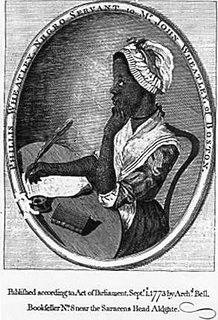
"Controversy is only dreaded by the advocates of error." -Benjamin Rush
My friends all think that I'm a controversialist. They're right. I don't mind being in opposition against other ideas and opinions. After all, someone's going to have to be the bad guy at some point. This may not come off very well to some, but there is a method to the madness; I'm not just trying to be a jerk for being a jerk's sake. I believe that we need to be challenged in order to get to the heart of things - to discover the truth of the matter. It has been said that no great accomplishment has ever come about without controversy. I believe this to be true. What can possibly be gained from agreeing to disagree? At times it may be necessary (at least in terms of non-essentials), but in our day, it has really gone too far. Someone's got to be right and someone's got to be wrong. It's a really trendy thing to say, "Let it go; what does it matter?" But the underlying sentiment of the statement is that if it's not worth finding out, it doesn't matter at all.
The Church is overrun with this sort of language and ideal. The "whatever works for you" plan of salvation is the prevailing method of the day, even in some churches that consider themselves to be staunchly "evangelical". The reason this is happening is quite simple: As goes the academy, so goes the church. We are indoctrinated with this kind of speak that passes itself off as "tolerance". If one is to take too firm a stance on any given position in the academic (as well as the religious) arena, they are considered to be "narrow-minded" or "hateful". God forbid, you try and actually integrate religious ideals into academia. Here's an example: The "theory of evolution", we are told, should be taught wholesale in public schools, but to teach "creation science" as a worldview would be ludicrous because it is based on religious beliefs and has no scientific foundation whatsoever. This shouldn't even be a controversy. The argument makes no sense (*see note below). But instead of Christians entering the fray, the majority backs down or withdraws altogether. Some even go as far as to try to accommodate their theology to accommodate for the apathy, both in spirituality and in scholarship, on this issue. As I stated, this is just one example. The list just keeps on going. No one wants to look too hard because it might all start to make sense. If one side starts to make more sense than the other, something has to change. Change is admitting that you were wrong. Nobody wants to admit that. So it's back to square one: "None of it really matters all that much". For Christians it becomes all about "advancing the Kingdom", so issues such as this don't matter in the long run. I beg to differ. Without controversy on such relevant issues, how can you be sure of which kingdom it is that you're actually advancing? Tolerance is the Trojan horse of the modern day era.
Too many times, we as the Church compromise to the point that our voice never to be heard. A lot of this comes from a lack of confidence (or a lack of knowledge) in the Word of God. We cheat ourselves, as well as the world, by our "relaxed" approach toward the Bible as the rule of our life. God left the church in the world, not to become a part of it, but to call people out of it; not to submit to its way of thinking but to have dominion by bringing every thought captive to the word of God. However, if one does hold to this view, they are not only seen as dogmatic and intolerant by the rest of the world, but in many cases, by the church as well! A Christian that stands on the word of God alone (sola scriptura) should never shy away from controversy. In fact, you should welcome it. We must learn to embrace the opportunity to have our faith "fire tested". Quick overviews of the Bible and history more than prove to us that God not only sustains the Church through controversy, but also causes it to thrive within the conflict as well. From Jesus v. Pharisees, Paul v. the Judaizers, John v. the Docetists, Jude v. the false teachers, up through the ages with men like Augustine, Anastasias, Luther, Calvin, and Knox as they fought against the erroneous teachings of the Roman Catholic Church itself. As we continue on, we see the likes of Edwards against spurious forms of revival; this was once again repeated by Ashael Nettleton as he stood against Finney's "revivalism". George Whitefield, for the sake of the authenticity of the Gospel was willing to put his friendship on the line up and against John Wesley's theology of grace. Spurgeon, in his day, spoke out against the creeping presence of liberalism that was making its way into the churches during what was known as "The Downgrade Controversy". Even into more present times, the likes of Machen, Schaffer (who coined it the 'Great Evangelical Disaster' in one of his books), and other great men of faith have given their all to contend for the faith that was delivered once for all to the saints. Believe me; the current status of the church is not free from strife. Sometimes we just like to think that we are by ignoring the elephants in the room. All of these controversies have one thing in common; the church beginning to allow carnality to walk through the front door and take its place behind our pulpits, in the name of getting a place at the table of the "acceptable" worldviews. We try to burr the edges of the Sword of the Spirit - the word of God, as to make less offensive and less capable of doing what it is meant to do.
The Word is supposed to cut to the heart and convict us of the folly of our own self-sufficiency. It should not matter whether or not it is accepted by the rest of the world or seen as intolerant. The priority of the Church is to seek first the Kingdom of God and His righteousness, not our own. We need to be more controversial in terms of this matter especially among our own congregations. We need to stir each other up with the truths of Scripture, not by the standards of worldly criteria. In order to stand before the face of God, we must rely on His word alone. If we do this, we are by default against the ways of the world (as we should be). No one will take Christians seriously until we first, individually and collectively, begin to take ourselves seriously enough to want to stand up and be counted as citizens of the Kingdom of Heaven; not through the means of government, not through the means of culture, but solely on the doctrines as they are taught by Christ and the apostles in the Bible as a means in and of itself.
Contend for the faith. Recover your Confession.
Soli Deo Gloria,
Shon
*note: the reason that the argument against Creation Science doesn't make sense is because it has a blatant atheistic slant. Evolution is itself still a theory, because it to is unproven. It then has to work both ways. To consider Creation Science an unproven based on religious beliefs puts it in the same category as the Theory of Evolution, because it is also based on religious beliefs (atheism is to be counted as such due to the fact that it is just as faith based in the negative sense). Therefore, all things being equal, why shouldn't Creation Science be taught along side Darwinism, if Creationism opponents are as tolerant as they claim to be? All "theories" should be taught as equal until the controversy between them is resolved.
"For, in the first place, when you come together as a church, I hear that there are divisions among you. And I believe it in part, for there must be factions among you in order that those who are genuine among you may be recognized." - 1 Corinthians 11:18-19 (ESV)
"For the weapons of our warfare are not of the flesh but have divine power to destroy strongholds. We destroy arguments and every lofty opinion raised against the knowledge of God, and take every thought captive to obey Christ, being ready to punish every disobedience, when your obedience is complete." - 2 Corinthians 10: 4-6 (ESV)
"But in your hearts regard Christ the Lord as holy, always being prepared to make a defense to anyone who asks you for a reason for the hope that is in you; yet do it with gentleness and respect, having a good conscience, so that, when you are slandered, those who revile your good behavior in Christ may be put to shame." - 1 Peter 3:15-16 (ESV)
"Beloved, although I was very eager to write to you about our common salvation, I found it necessary to write appealing to you to contend for the faith that was once for all delivered to the saints. For certain people have crept in unnoticed who long ago were designated for this condemnation, ungodly people, who pervert the grace of our God into sensuality and deny our only Master and Lord, Jesus Christ." - Jude 3-4 (ESV)







